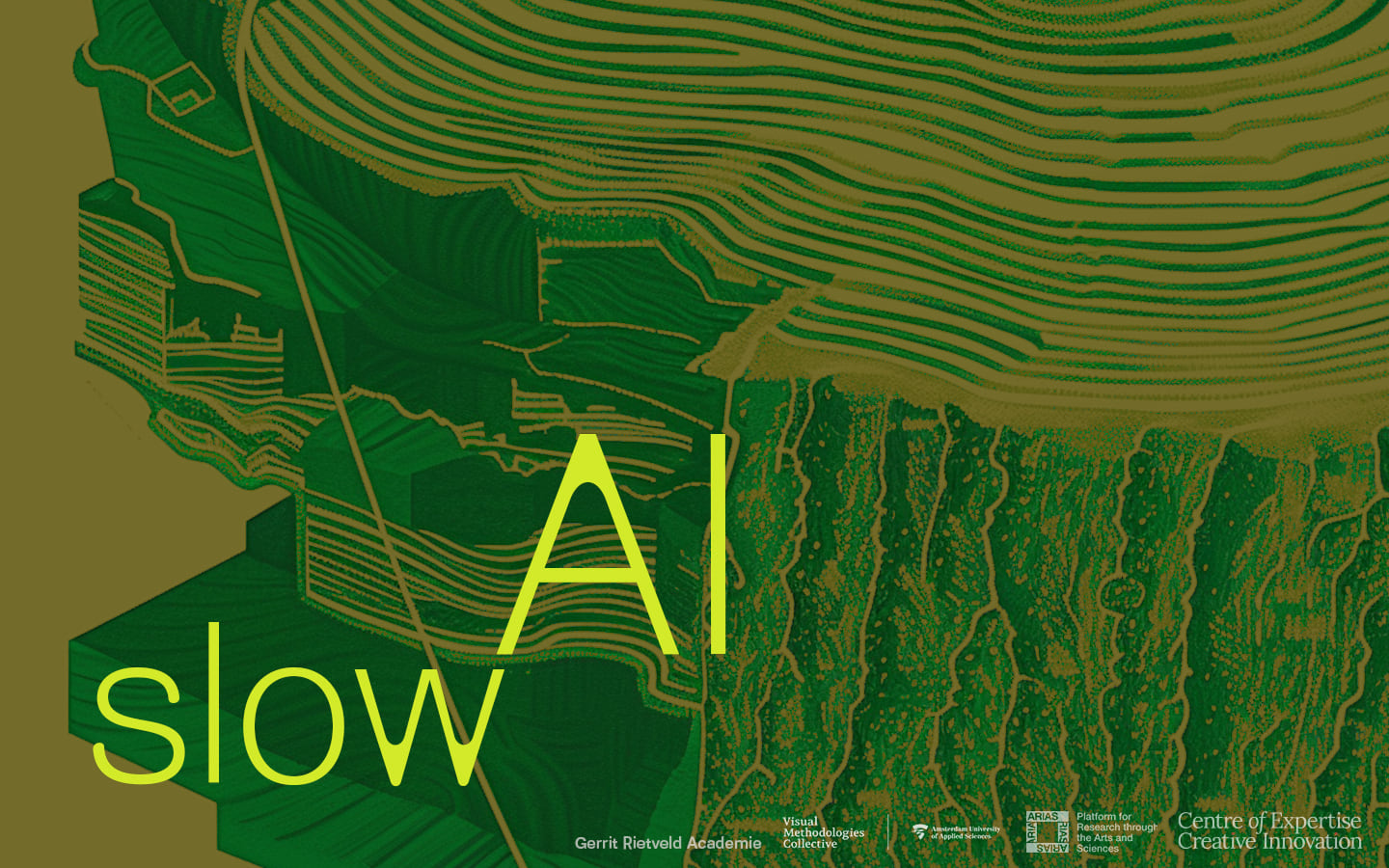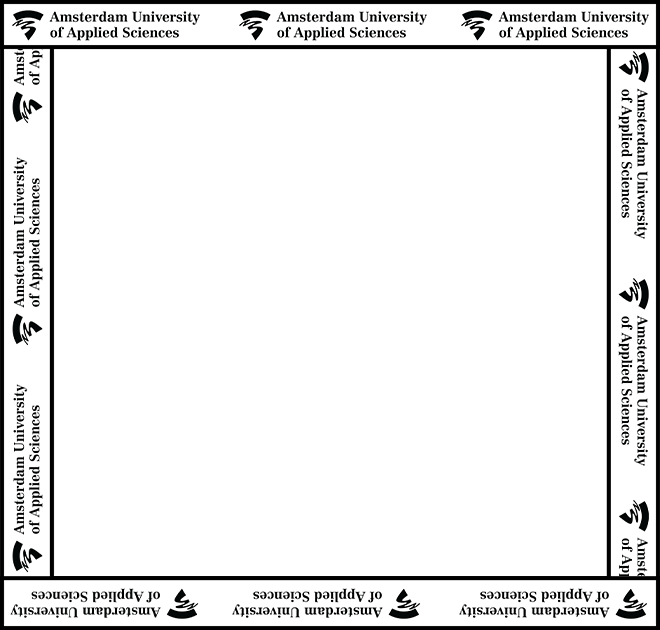researchers:
How can we create anti-colonial approaches to AI?
How can ‘slow’ principles help us arrive at better ways of designing, deploying and engaging with the technology across different fields?
What can a Slow AI become?
We are excited to share with you the launch of “Slow AI,” a collaboration between the Visual Methodologies Collective at Amsterdam University of Applied Sciences and the Algorithmic Cultures Research Group at Gerrit Rietveld Academie, Amsterdam. Originating from Mariana Fernandez Mora’s ongoing research into decoloniality in AI, this project will focus on laying the ground for developing strategies to address colonial and extractive histories embedded in current AI systems by introducing the concept of slowness to a fast technology. The project will do this through a series of working sessions and material-based research workshops in collaboration with the ARIAS Artificial Worlds group which will culminate in a publication presented together with a symposium.
As Artificial Intelligence becomes increasingly prevalent in every aspect of our lives, it is crucial to address the way it amplifies existing colonial, extractive, and biased structures embedded in it. Issues such as the homogeneity of AI creators, biases, and the environmental impact of the technology are some examples of the urgent need for innovative approaches that counter act them. In response, the Slow AI project introduces the concept of ‘slowness’ to this fast technology, understanding it beyond a temporal metric and rather as a change in modes of engagement that resist notions of speed, efficiency, and optimisation rooted in its colonial and extractive history. It aims to challenge the prevailing trends of extraction, rapid consumption, immediate gratification, and the relentless pursuit of efficiency that have characterised the digital era, particularly within AI.
This research is informed by scholars like Virginia Eubanks, Kate Crawford, Safiya Noble, Ruha Benjamin, and James Bridle looking to emphasise the importance of addressing underlying power dynamics and systemic issues in AI from a multi-disciplinary perspective.
Team:
Mariana Fernández Mora (HvA)
Sabine Niederer (HvA)
Flavia Dzodan (Rietveld Academie)
Maarten Groen (HvA)
Zachary Formwalt (Rietveld Academie)
Andy Dockett (HvA)
Janine armin (HvA)
In collaboration with ARIAS Amsterdam and generously funded by the Centre of Expertise Creative Innovation, Slow AI aims to contribute to a more equitable and sustainable technological landscape.
For updates on the research and public events, subscribe to the ARIAS Artificial Worlds newsletter here.




 Back
Back